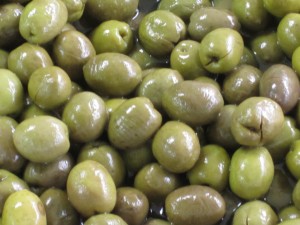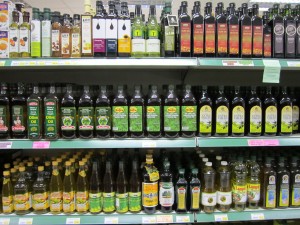By Tom Westcott.

London, 10 December 2012:
Olive oil, a staple of the Libyan diet, could be the country’s answer to future diversification from . . .[restrict]the hydrocarbon industry, which currently accounts for 95 percent of exports.
Last week, at an exhibition of dates and olives in Tripoli, Libya’s production of olives and olive oil were discussed as a future trade opportunity. Taher al-Zweibek, an official of the export promotion centre, told AFP that Libya had decided to up the quality of its olive production to tap into lucrative European markets.
The expectation amongst European markets of certain standards of packaging and labelling and how these can affect export opportunities was also acknowledged. Zweibeck said: “A national label will be created and used to identify Libyan products in order to facilitate marketing while establishing a relationship of trust with the consumer.”
According to the United Nations Food and Agriculture Organisation (FAO) in 2010 Libya was the world’s 12th biggest producer of olives, producing 180,000 metric tons, with an estimated value of over $144 million. Libyan olive oil, however, is not widely known in Europe.

Olive oil-producing regions, such as at Emselata, export much of their supply to Tunisia, the world’s sixth largest olive producer, where it is processed, bottled and exported as Tunisian olive oil.
Some of this Libyan-Tunisian oil is apparently imported back into Libya, although many Libyans prefer to buy directly from farmers who press their own oil and sell it by the roadside.
Now, however, change could be on the horizon. Agriculture was neglected and held back under the old regime but with its passing, there should be better opportunities for farmers. Not only will they be able to invest in modern equipment to make harvesting and processing olives swifter and more efficient, but they will no longer have to sell their harvest to the government at reduced prices.
The ministry of agriculture is also looking into growing other varieties of olive. At the Tripoli exhibition agriculture ministry official Saad al-Kunni said that Libya has been experimenting with a new kind of Spanish olive, the Arbequina. Initial trials were apparently so encouraging that nearly 2,000 hectares have now been planted with Arbequina in two separate agricultural projects.
In a report on Libya earlier this year the International Monetary Fund said that “institutional reforms are necessary to reorientate the economy away from hydrocarbon dependence and to promote job creation.”
Agriculture was one of Libya’s main activities before the discovery of oil in 1958, with some 80 percent of the population involved in agriculture or animal-rearing in the 1950s. By 1999 this had fallen to a mere 18 percent.
Diversifying back into agriculture is an important step to ensuring a sustainable future for the country.
Olives are the country’s fifth biggest home-grown commodity, after potatoes, watermelons, tomatoes and onions, according to the FAO’s 2010 statistics. The best olive oil reputedly comes from Emselata and Tarhouna, centres of olive oil production for at least 2,000 years.
Some of the olive trees in these groves are believed to be some 2,000 years old, thought to have been planted by the Romans, for whom Libya was an important supplier of olive oil. One of these is so old that the centre of the tree as gone and there is now a circle of trees around where the original trunk stood. These ancient trees still bear fruit.
Most of today’s eight million olive trees were planted by Italian colonists in the 1920s and 30s. The Libyan olive oil industry was then effectively destroyed by Qaddafi when, having expelled the Italian farmers, he decided that Libya did not need the industry.
There were few Libyan farmers to replace the Italians and, in the 1970s, students from the University of Tripoli were drafted in to help harvest the olives. These conscripted harvesters were unfamiliar with the usual method of gently shaking the ripe olives out of the tree onto a covering below.
Instead, according to a local who remembers watching these untrained harvesters: “People were bashing branches with sticks and breaking them, or trying to pick olives by hand, a laborious job.” In the end many olives were left to fall and rot.
Many farms near Tripoli were split up and sold as weekend homes and the new owners often viewed their olive trees as merely decorative. They would have some olives pressed for oil for their own use but the rest were left to spoil.
Regular consumption of olive oil is reported to have extensive health benefits, including lowering cholesterol and blood pressure, and keeping osteoporosis and depression at bay.
[/restrict]










